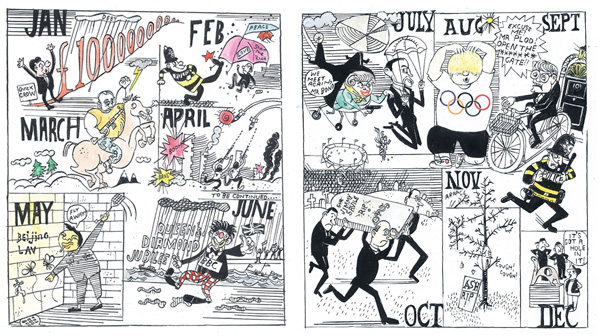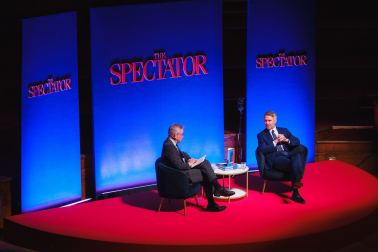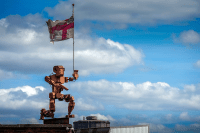January
Britain’s public debt rose above £1,000 billion for the first time. Fred Goodwin, the former chief executive of the Royal Bank of Scotland, was stripped of his knighthood. The High Speed 2 rail link between London and Birmingham was given the go-ahead. Police removed protestors’ tents in Parliament Square under a new act. Abu Qatada won an appeal to the European Court of Human Rights against deportation to Jordan. In Syria protestors continued to be killed. In Saudi Arabia 28,000 women applied for jobs in lingerie shops, in which only men could previously serve.
February
The High Court ruled that prayers said at meetings of Bideford council were unlawful. Police removed tents from a protest camp at St Paul’s, set up on 15 October. The Greek government held endless talks with the EU, the European Central Bank and the International Monetary Fund to avoid financial meltdown. Syrian forces attacked Homs. Scientists in Russia propagated narrow-leafed campion from fruits buried by Arctic ground squirrels 32,000 years ago.
March
Leaders of EU countries, apart from Britain and the Czech Republic, signed a fiscal compact requiring incorporation of balanced budgets into law. David Cameron, the Prime Minister, admitted that he had ridden a horse called Raisa, lent by the Metropolitan Police to Rebekah Brooks when she was editor of the Sun; it had since died. Dr Rowan Williams announced his resignation as Archbishop of Canterbury at the end of the year. Thousands of refugees fled Syria. Vladimir Putin was elected President of Russia. George Galloway won Bradford West for the Respect party. Engelbert Humperdinck, aged 75, was chosen to represent the UK at the Eurovision Song Contest, in Azerbaijan. Venus came very close to Jupiter.
April
First-class stamps went up from 46p to 60p.








Comments
Join the debate for just £1 a month
Be part of the conversation with other Spectator readers by getting your first three months for £3.
UNLOCK ACCESS Just £1 a monthAlready a subscriber? Log in